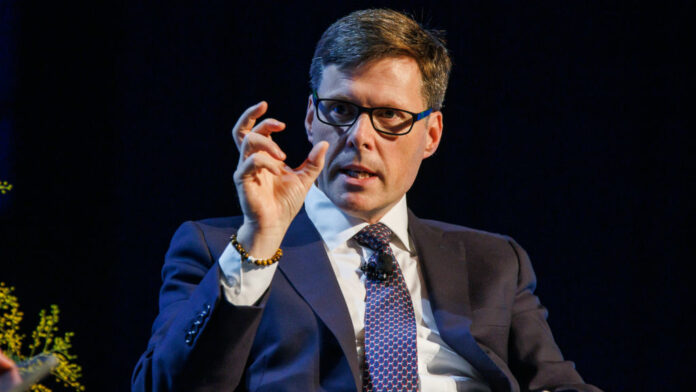
ANGLO American CEO Duncan Wanblad said it was “completely logical” for investors to be concerned about the impact of the group’s $4.8bn Woodsmith fertiliser project when there was pressure on earnings.
“When we started doing this project Ebitda was $20bn a year but now we are heading for about half of that at this point in time,” he said.
Asked if investors were right to be concerned he replied: “It’s completely logical. The project is more challenging now as half of Ebitda was once De Beers and PGMs (platinum group metals) which is not there right now,” he said.
Woodsmith is expected to cost $1bn a year to finance with some analysts saying the group would most likely not recoup its capital.
“Will the mine beat its cost of capital?: No,” said HSBC analyst Shilan Modi last year. Woodsmith would have to generate annual earnings of $425m in 2030 compared to the bank’s base case earnings of $230m, he said.
“It took five to six years of cash out for Quellaveco (Anglo’s $5.3bn copper project in Peru). That notion of putting in that capital for that amount of time is making people nervous.
“But I am absolutely convinced this will be a cornerstone asset in Anglo American,” said Wanblad. “The value of Woodsmith has not changed at all. We have to deal with it and it becomes more of a thing to focus on, but it’s no surprise,” he said of the criticism.
Wanblad said the group would syndicate the project, but he declined to comment on speculation the group was close to selling a portion of the project.
Shares in Anglo American are 4% lower this year even after a massive sell off in December shortly after downgrading its production for 2023, including copper.
Since then, the copper has slipped into a deficit, assisted by the closure of First Quantum Minerals’ Cobré Panama and other production shortfalls. Yet the copper price has continued to weaken which Wanblad said was confounding.
“The copper price is falling, but it is the most scarce mineral that we have,” he said. The metal’s price reflected a sentiment of “relatively high perceived risk in the world which is militating against the type of investment needed to bring the metals,” he said.
Inflation, increased geopolitical risk, and the slow pace of China’s post-Covid recovery contributed towards the perception of high risk for long-lead projects. “No-one really knows what is going to happen and this year looks like it will be relatively disrupted in that same guise,” said Wanblad.
There are also concerns about the direction of policy given the number of democracies that are taking to the national polls this year.











